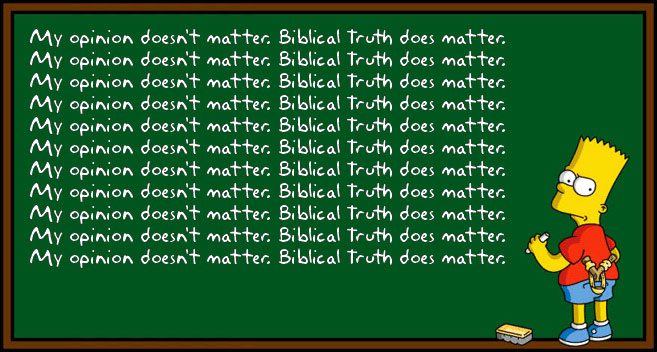
Independent Fundamentalist Baptist (IFB) churches are independent congregations. Each church is an entity unto itself. The IFB church movement is not a denomination per se, but churches do “fellowship” and join together around groups or institutions such as Bible colleges and missionary agencies. These voluntary associations are called “camps.”
In a post titled Let’s Go Camping: Understanding Independent Fundamentalist Baptist Camps I wrote:
To properly understand the Independent Fundamentalist Baptist (IFB) church movement, you must first understand the IFB concept of camps. In the IFB, a camp is the tribe to which you belong. It is a membership group that is defined by such things as what Bible version is considered the “true” Word of God, what college the pastor attended, approval or disapproval of Calvinism, open or closed communion, or ecclesiastical, personal, and secondary separation. Many IFB camps will have multiple “positions” that define their group, and admission to the group is dependent on fidelity to these positions. Many pastors and churches belong to more than one camp.
As an IFB pastor, I swam in the waters of several camps: Sword of the Lord, Baptist Bible Fellowship, Midwestern Baptist Fellowship, and Buckeye Baptist Fellowship. While every camp has its own peculiar identity, the one thing they all had in common was their independence from ecclesiastical control.
I pastored two denominational churches: a Southern Baptist congregation in Clare, Michigan, and a Christian Union church in Alvordton, Ohio. The churches I pastored in San Antonio, Texas and Montpelier, Buckeye Lake, Somerset, and West Unity, Ohio were all independent congregations. All but one of these churches were new church plants, three of which were planted by me.
While the Southern Baptist and Christian Union churches I pastored were denominational congregations, there were no rules governing who could or couldn’t be a pastor. I found that these churches were every bit as free to govern themselves as IFB congregations.
Most Evangelical churches in the United States are congregationally governed. The church membership has the final say on everything, including who will be their pastor. A small number of Evangelical churches are board-controlled. In these churches, congregants have very little control over the church. Most IFB churches are decidedly congregational, although pastors can exert substantial influence over church decisions. Some pastors are quite dictatorial. While their churches are congregational, the church membership is little more than a rubber stamp for whatever the pastor wants to do. This, of course, can lead to all sorts of problems, especially when a pastor has been at a church for a long time. Long-tenured pastors can become quite possessive, thinking that their church is some sort of personal possession.
How, then, does a man — no women allowed — become an IFB pastor? What are the requirements for becoming a pastor?
Many denominations require prospective pastors to meet certain guidelines. Some, however, do not. That was certainly the case for the Christian Union and Southern Baptist churches I pastored. The respective denominations had no requirements whatsoever for ministers. The Southern Baptist Convention and its churches, are no different from IFB churches in this regard. This became clear during the sect’s recent sexual abuse scandal when people realized that the Southern Baptist denomination has no power over individual churches. All that the SBC can do is kick a church out of the denomination. They have no control over the internal workings of affiliated churches. So what I write next about IFB congregations and pastors can also be said about SBC churches.
IFB churches require that a prospective pastor have a credible salvation testimony, be baptized by immersion, be a member in good standing of a local New Testament Baptist church, and demonstrate a calling from God to be a preacher. Three of these four qualifications can easily be verified, However, it is the fourth qualification that can be problematic. A “call from God” is a subjective experience. How does a church know that a man is called to preach? Because he says he is. In my case, I was called to preach as a fifteen-year-old boy, two weeks after I was saved. Within a month, I preached my first sermon. Not one person ever questioned my calling. How dare they, right? If God was calling me to full-time service, who were they to question God’s work in my heart?
Many IFB preachers enter the ministry without any formal education. All a man needs is a calling from God, the Holy Spirit, a King James Bible, and a Strong’s Exhaustive Concordance. Many preachers-to-be go off to college to prepare for the ministry, typically attending the Baptist equivalent of finishing schools. Typically, these colleges are unaccredited or deceptively say they are accredited by organizations no one has heard of. While some IFB colleges have national accreditation, most do not. All one has to do to check an institution’s accreditation is ask whether it accepts Federal financial aid such as the Pell Grant. If the college says no, that means it is not accredited.
Sadly, many IFB colleges provide inferior educations for pastors-to-be. The goal isn’t knowledge as much as it is reinforcement of beliefs, continued conditioning, and indoctrination. I can’t emphasize this point enough. The goal of Midwestern Baptist College, the character-building factory I attended for three years in the 1970s, was not to teach me new things, challenge me, or expand my academic horizons. The goal was to train me to be a hardened soldier in the IFB army, a hellfire and brimstone preacher of the IFB gospel. Midwestern professors made it clear to students that there was an approved doctrinal script they were required to follow. Failure to do so would cost them their jobs. Certain theological subjects were not talked about: Charismaticism, Calvinism, and using non-KJV translations come to mind. Any professor or student found promoting these heresies was booted out the front door of the college. Thus, I left Midwestern in the spring of 1979 with zero knowledge about the Charismatic movement and Calvinism, other than I was a’gin it.
The quality of education varies from college to college. While I learned many practical things at Midwestern and met the love of my life, I receive an inferior, almost Sunday school-like, education from men who had received a similar education before me when they were students at Midwestern. While I struggled with some of my classes at Midwestern, it wasn’t due to academic rigor. My struggles came from working a full-time job and trying to perform and fulfill all the church and ministry requirements. I suspect many students had similar difficulties. There were only so many hours in a week.
Not one church I pastored ever questioned the quality of the education I received at Midwestern. Part of the reason for this is that I worked very hard over the course of twenty-five years in the ministry to plug the holes in my training. I was a voracious reader, a man who took seriously preaching the Bible. I spent upwards of twenty hours every week reading and studying the Bible and preparing my sermons. I was determined to become an educated IFB preacher. I largely achieved that goal, as my colleagues in the ministry can attest.
Once a man is ready to pastor his first church, he is typically ordained by his local church. I was ordained in 1983 by Emmanuel Baptist Church in Buckeye Lake, a church I started with my father-in-law. Two months later, I left Emmanuel and started a new IFB church in Somerset. Ordination is the stamp of approval the local church puts on a man whom they believe is called to preach . While ordination grants new pastors certain legal and financial benefits, the purpose is mainly to say “we approve.”
Scores of American IFB churches are pastored by men with substandard educations, with no other qualification other than a subjective calling and a local church’s approval. Once on the field, these newly minted pastors are free to do their own thing with no control or oversight. Remember, every church is independent.
If a man stays within the confines of the IFB church movement, he can have a productive ministry, However, it is when he leaves the movement problems arise. Let’s say he wants to change sects. He quickly finds that there are rules he must follow. He might need to be re-ordained or go back to school for more training. Some Evangelical sects have strict educational requirements (though they still can be quite limited in scope). Some IFB pastors want to leave the ministry altogether. They soon learn that their Bible college educations are worthless. Imagine spending four years getting a Bible college education, only to learn that your degree is of no value outside of the church. Just because you can teach at a Bible college or a Christian school doesn’t mean you can do the same in the “world.” While men with IFB educations can use their degrees as resume fodder — I did — HR departments, if they do their due diligence, will quickly learn that their prospective employees’ degrees are not worth the paper that they are written on. I found that my college education opened employment doors for me, especially if the person interviewing me was a Christian. What carried greater weight was my extensive ministerial experience. Prospective employers quickly learned that I had good people and problem-solving skills.
I have interacted with numerous IFB pastors who have left the ministry. Some deconverted, others were flat worn out from the incessant demands and pressures that come with pastoring IFB congregations. Make no mistake about it, pastoring an IFB church is hard work and not for the faint of heart. Some men leave the ministry because they want a “normal” life: better pay and benefits, more family time, and reasonable employment expectations.
The challenge, of course, for men who leave — regardless of the reasons — is what to do going forward. Most men have to reinvent themselves. I know I have. While I am still, in some sense, a “pastor,” I had to change virtually every aspect of my life after I left the ministry in 2005. While health problems put an end to my work career, I have found new things to do such as writing, collecting electric trains, and making up for all the time I lost with my family while I was a pastor. My sister owns a medical training school in Phoenix, Arizona. I do some tech work for her.
It took me years to come to terms with the new me. Until 2005, my whole adult life had revolved around the work of the ministry. Just ask my children. If their Dad was anything, he was committed to God and the church. Everything we did as a family was to that end.
Do you want to be an IFB pastor? You can become one today. Do you want to start an IFB church? You can do that today too. In 2016, I wrote a post titled You Can do It: How to Start an Independent Fundamentalist Baptist Church detailing how you can start an IFB church:
John “Jesus Lover” Baptiste recently graduated from an unaccredited Independent Fundamentalist Baptist (IFB) college. After three or four years of superficially studying the Bible, John received his degree in Jesus-Loving, Devil-Chasing, Sin-Hating Pastoral Ministry. Now what?
Graduates are encouraged to go into all the world — well mainly the United States — and win souls for Jesus. The best way to do this is to start a new church.
Here is what John “Jesus Lover” Baptiste needs to do to start a brand spanking new Independent Fundamentalist Baptist church.
First, find a town where there are churches on every corner and convince yourself that ALL of those churches are liberal, apostate, using the wrong Bible translation, or using worldly music.
Second, confuse your own desire and ambition with the Holy Spirit leading you and God calling you to start a new church.
Third, rent a meeting place or building. Make sure you get the building as cheaply as possible. If the building owner is a Christian, lay a spiritual guilt trip on him to get him to lower the rent and then invite him and his family to the first service.
Fourth, put a puff piece in the newspaper telling locals why you are starting a new church in their community. DON’T tell them that you think ALL the other churches in town are liberal, apostate, using the wrong Bible translation, or using worldly music. You want to be able to poach members from other churches later, so it is important no one knows what you really think of every other church in town.
Fifth, every day pray that God will bless your endeavor. Convince yourself that God put you in the community to win everyone to Jesus, and that without you they will all go to hell.
Sixth, tell your wife and children that you love them, but they are going to have to understand that Jesus comes first, and you will have to neglect them in order for a GREAT church to be built. Also, tell them that they will have to mow the churchyard, clean the church, play the piano, work in the nursery, teach Sunday School, and anything else you ask them to do. Try to explain to them that, yes God called YOU, but he expects you to bring luggage.
Seventh, much like the Jehovah’s Witnesses, knock on every door in town and witness to everyone who dares to answer. Lie to them by saying, I am not here to take you from your church home. All that is important is that you know Jesus as your Savior. Don’t let them know that if they get saved you will expect them to come to the church that cared enough to lead them to Jesus. And get baptized. And attend services every time the church doors are open. And tithe. And obey every edict uttered by you from the pulpit.
Eighth, run some ads in the local newspaper and put up flyers on every public bulletin board. Church-hopping members (please see The Fine Art of Church Hopping) from nearby IFB churches will notice the ads and see this as “God leading them” to leave their churches. This is the quickest way to start a new church. And just remember, when they leave your new church a few years later for a newer church, that you were willing to sacrifice your integrity for numerical gain. You are now ready for your first service. Remember one thing: most new church plants fail, especially IFB churches. Perhaps, it would be better if you join up with one of the other churches in town and help them. Silly me, you will never do that. You are a God-called, Holy-Spirit-powered, Independent Fundamentalist Baptist pastor, and such a calling deserves its own church, and a BIG sign that says, in BIG type, JOHN BAPTISTE, PASTOR.
The Bible says that the calling of God is irrevocable. Thus, I am still a Christian, a God-called preacher. I even have an ordination certificate to prove it. 🙂
Bruce Gerencser, 68, lives in rural Northwest Ohio with his wife of 47 years. He and his wife have six grown children and sixteen grandchildren. Bruce pastored Evangelical churches for twenty-five years in Ohio, Texas, and Michigan. Bruce left the ministry in 2005, and in 2008 he left Christianity. Bruce is now a humanist and an atheist.
Your comments are welcome and appreciated. All first-time comments are moderated. Please read the commenting rules before commenting.
You can email Bruce via the Contact Form.


